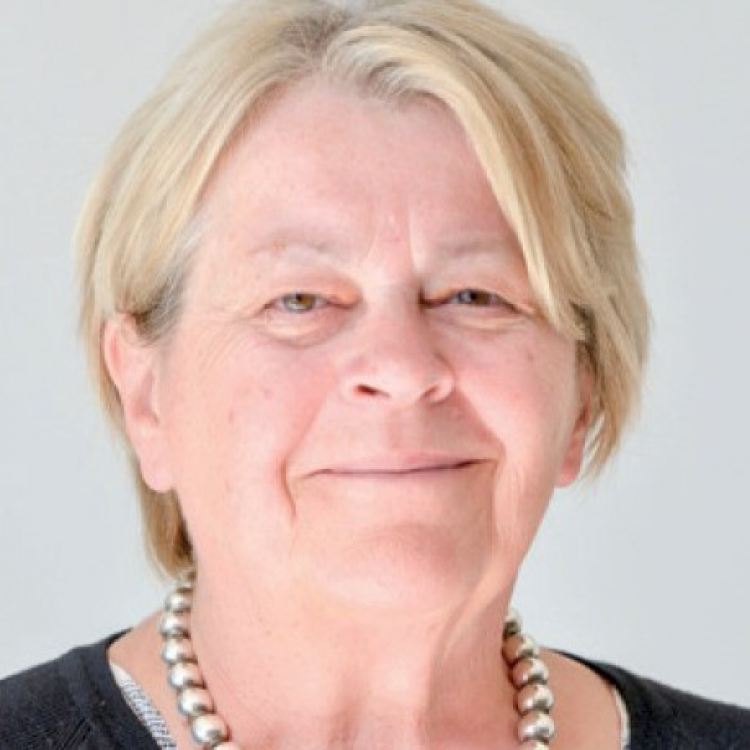Airmic CEO focus: Deliver present imperatives to enable future ambitions

Julia Graham took over in April as chief executive, bringing her own leadership style and ideas to the CEO role at Airmic.
Julia Graham has some immediate priorities as well as big ambitions as Airmic’s new CEO, beginning with the first hundred days focused on achieving the 2021 business plan.
Her appointment represents a smooth succession for the chief executive role, after her previous position of deputy CEO and technical director since 2015, working closely with Airmic colleagues and previous CEO John Ludlow navigating the organisation’s route through and out of the pandemic period.
She brings more than 35 years’ experience in senior risk management and insurance positions to the role, including serving as director of risk management and insurance at a global law firm and 30 years in the insurance sector.
Closeness to the insurance market brings certain advantages, particularly with established relationships and an understanding of the industry’s perspectives, she emphasised, speaking to Airmic News.
“I’ve been accustomed to understanding how things work in the insurance market for a long time in the UK and internationally. I’ve already had some very supportive feedback from the market, and I’m still trying to reply to all the messages of encouragement I’ve received,” she says.
Graham is a former chair of both Airmic and FERMA, the Federation of European Risk Management Associations, and is a current board member of IFRIMA, the International Federation of Risk and Insurance Management Associations.
“However, I have a relatively unusual background that embraces insurance, risk and resilience, for example I’m proud to be a Fellow of the Chartered Insurance Institute and the Business Continuity Institute.”
“I want my leadership to build on Airmic’s strengths and enviable reputation for being trusted and credible among our members and partners. In this period of uncertainty, empathy, clarity, authenticity, agility and adaptability - all hallmarks of resilience - have never been more important” she said.
“I think we’ve operated amazingly well through challenging times of the past year, and as we start to look to the future, we’ll maximise the opportunities to leverage new insights and the advancements developed during the past months to reimagine our association and our workplace, rather than attempting a return to business as usual,” Graham added.
Airmic has put renewed focus on resilience throughout the Covid-19 crisis, from the digital transformation of its 2020 and 2021 events programmes, and the signing of a Resilience Alliance with several partnering member associations, to continued investment in the depth of the bench represented by Airmic’s secretariat.
“I have my own style so I won’t be doing things exactly the same as they’ve been done before, but it’s also crazy to throw everything up in the air. It’s good to have stability and continuity, with someone who knows how it works,” Graham said.
Firstly, she emphasises delivering on the business plan for 2021, recently green-lit by Airmic’s board.
“We need to deliver what we’ve said we’ll deliver, to achieve the business plan, relating to our members, our partners, and our events,” Graham said. “We already know what good looks like, so there’s no need to reinvent that wheel. I’m glad to bring that continuity, and the confidence and stability that comes with it, to the CEO role.”
“However, whilst we’re optimistic we’re not naïve, and we know that plans for the return to a
physical conference at Brighton in October will take careful planning, the balancing of financial implications, and the health and well-being of those who plan to be there uppermost in our minds. We’ll take a final decision about this in collaboration with our members and partners at the start of July”, Graham said.
People are at the heart of her plans. for the second 100 days as CEO, focused on developing plans for 2022, Graham explains.
“I already specific ideas to turn us into a more diverse organisation in our membership and our offering. Events of the past year, particularly the pandemic’s effects and louder calls for equality, have put a sharp focus on issues such as workforce wellness, employee rights, and environmental, social and governance performance - including diversity and inclusion,” she said.
“Promoting talent for the future is a big focus of mine,” she added. “To be up there with the leading business actors at the front of the stage, we will all need to learn new skills and apply them effectively. Going from being the stage technician to a leading actor takes training, courage and confidence, and we want to provide the platform for development and networking on which to achieve this.”
